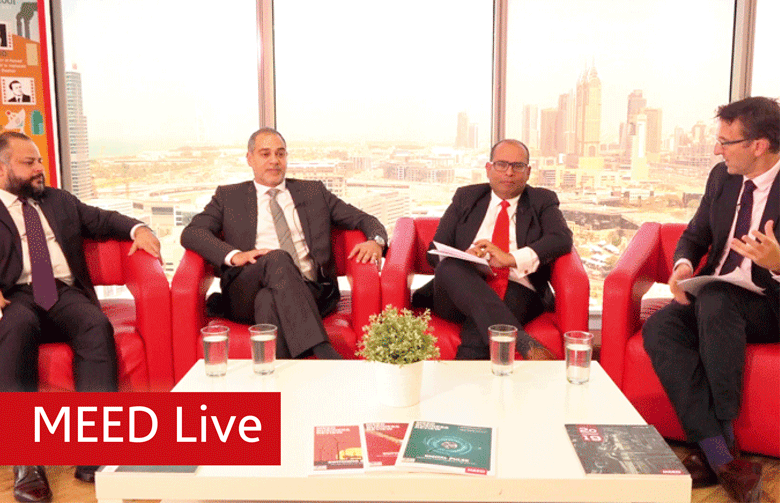

The Middle East’s power sector is undergoing an unprecedented transformation as utilities strive to improve efficiency and diversify energy sources for electricity production. Governments are seeking to reduce costs and carbon emissions through new technologies and alternative fuels for power generation.
The best way to reduce pressure on government balance sheets and improve efficiency of power networks is through forming partnerships with the private sector to develop, operate and maintain the region’s generation facilities. Recent volatility in the oil market has further strengthened the resolve of the region’s governments to seek private partners to assist with delivery and financing of electricity projects.
To provide context, analysis and commentary on these evolving market dynamics, MEED, in partnership with GE, recorded a special live broadcast with key players in the region’s energy and financial sectors to discuss financing projects in the Middle East’s rapidly changing power industry.
MEED was joined by the following experts for the special broadcast:
- Rajit Nanda, chief investment officer, Acwa Power
- Yusuf al-Khan, managing director, head of trade for Middle East, North Africa, Pakistan and Turkey, Citi
- Ahmed Ramadan, CEO North East Africa and CFO for Menat global growth operations, GE
Watch the broadcast here.
[embed]https://youtu.be/Rc58DcHIfB8[/embed]
MEED Live highlights
While the independent power project (IPP) model has been prevalent in the Middle East’s power sector for almost three decades, the model has been adopted almost wholesale by the region’s utilities in the period of lower oil prices since 2014.
“It is going through a boom phase,” says Rajit Nanda, Acwa Power’s chief investment officer (CIO). “Utilities are now aware of the [model’s] efficiency and its effectiveness in delivering a reliable service.”
Nanda explains that attracting private sector capital for power generation and water desalination projects preserves state capital to use for essential infrastructure, such as transmission networks, which is not as attractive for private financing.
GE’s Ahmed Ramadan says that shifting and mitigating risks, including risk from pursuing new technologies, from utilities to developers is another reason the region’s governments are seeking to attract private partners to develop power plants.
Citi’s Yusuf Khan says that while there is a pattern across the region in the move towards private financing of utilities projects, the challenges for each market can differ significantly.
“Each country has its own dynamics and risk,” Khan explains. “Because IPPs are typically 12-years plus, enforcement and dispute resolution is important. Is the regulatory environment strong enough for lenders to enforce contracts.”
‘Seismic change’
While each market faces different challenges in increasing power capacity, a common issue facing developers is attracting finance in the post financial-crisis era.
“From a financing perspective, a seismic change is that the conventional bank pool of liquidity that supported power and infrastructure 10 years ago is not available for long-term lending in significant quantities,” explains Nanda. “For billion-dollar projects, creative structures which address long-term maturity are required.”
Ali Khan says multilateral financing from institution and export credit agency (ECA) funding are becoming increasingly prevalent in the region’s growing IPP market.
Conventional project bonds, which have failed to take off previously for refinancing regional power projects, are likely to become more prevalent alongside Islamic bonds (sukuks). The emerging green financing and green bond market is also likely to play a key role moving forward in meeting the requirements of the region’s renewable energy plans.
Check out the full-broadcast and highlights video now for in-depth discussion, insight and analysis on ‘Financing the region’s power plans.’
You might also like...

Rainmaking in the world economy
19 April 2024

Oman receives Madha industrial city tender prices
19 April 2024

Neom seeks to raise funds in $1.3bn sukuk sale
19 April 2024

Saudi firm advances Neutral Zone real estate plans
19 April 2024
A MEED Subscription...
Subscribe or upgrade your current MEED.com package to support your strategic planning with the MENA region’s best source of business information. Proceed to our online shop below to find out more about the features in each package.





